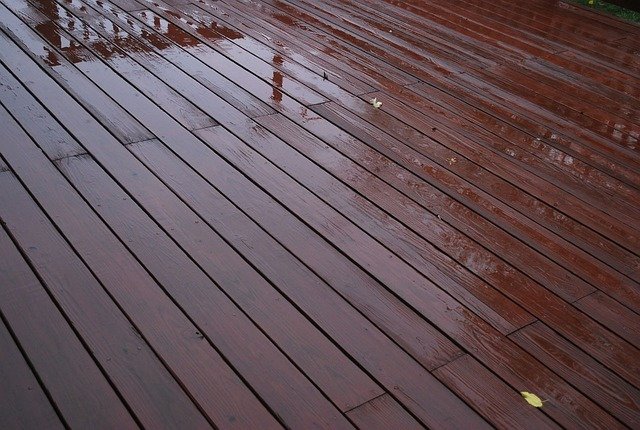Is Composite Decking Slippery When Wet?
In recent years, composite decking has become a popular alternative to traditional wood decking due to its durability, low maintenance, and aesthetic appeal. However, there are concerns about its slipperiness, especially when wet. This article explores whether composite decking poses a slipping hazard and discusses its performance in wet conditions. Moreover, you'll explore the significance of composite decking in Tasmania, a region where outdoor spaces face unique challenges.
Understanding Composite Decking
Composite decking is a synthetic material comprising wood fibres, recycled plastics, and binding agents. This combination results in a deck board resistant to rot, insects, and warping, making it an ideal option for those seeking a long-lasting and low-maintenance outdoor surface. The surface texture of composite decking varies among brands and models, ranging from deeply embossed grain patterns to smoother finishes.
Slip Resistance in Composite Decking
The slip resistance of decking materials is a crucial consideration, especially in areas prone to rain, snow, or high humidity. Traditional wood decks can become dangerously slippery when wet, leading to accidents and injuries. Composite decking manufacturers include anti-slip technology in their products to address this issue.
Most composite decking products feature textured surfaces that provide enhanced traction, even when the boards are wet. The depth and pattern of these textures vary, but their primary purpose is to reduce the likelihood of slipping. Moreover, some manufacturers offer composite decking with specialised coatings or boosters that further improve slip resistance.
Testing and Certification
To evaluate the slip resistance of composite decking, manufacturers often conduct tests based on industry standards. The most common method is the pendulum test, which simulates a person walking on a wet surface. The results are then assigned a slip resistance rating, with higher values indicating better slip resistance.
Consumers should check for relevant certifications and ratings when selecting composite decking. The slip resistance of a particular product may be influenced by factors such as the texture of the surface and the presence of any additional protective coatings.
Composite Decking in Wet Conditions
Despite the efforts made by manufacturers to enhance slip resistance, homeowners need to exercise caution in wet conditions. While composite decking performs well, factors such as standing water, algae, or leaves can reduce traction. Regular cleaning and maintenance are crucial to preserving the slip-resistant properties of composite decking.
It's worth noting that the slip resistance of any decking material, including composite, can be affected by environmental factors. In regions with frequent rainfall or humid conditions, homeowners should prioritise proper drainage and routine cleaning to prevent the buildup of slippery substances on the deck surface.
Composite Decking in Tasmania
Tasmania, known for its rugged landscapes and diverse weather patterns, requires outdoor materials that can withstand various conditions. Composite decking in Tasmania is gaining popularity due to its ability to resist moisture, mould, and insects.
Tasmania experiences a temperate maritime climate with mild temperatures, high humidity, and significant rainfall. These conditions can take a toll on traditional decking materials, leading to decay, warping, and slipping hazards. Composite decking, with its moisture-resistant properties, is well-suited for the Tasmanian environment.
Conclusion
While composite decking is built to resist slipping, it's not entirely immune to wet conditions. Homeowners must choose high-quality products with certified slip resistance and prioritise regular maintenance to ensure long-lasting safety features.
Composite decking is a practical solution in challenging regions like Tasmania, where weather conditions can be tough. Its resistance to moisture-related issues makes it an appealing choice for homeowners seeking durable, secure outdoor spaces amid varying weather conditions. As the demand for composite decking in Tasmania rises, residents should make informed choices tailored to their needs and the unique challenges posed by the local climate.
